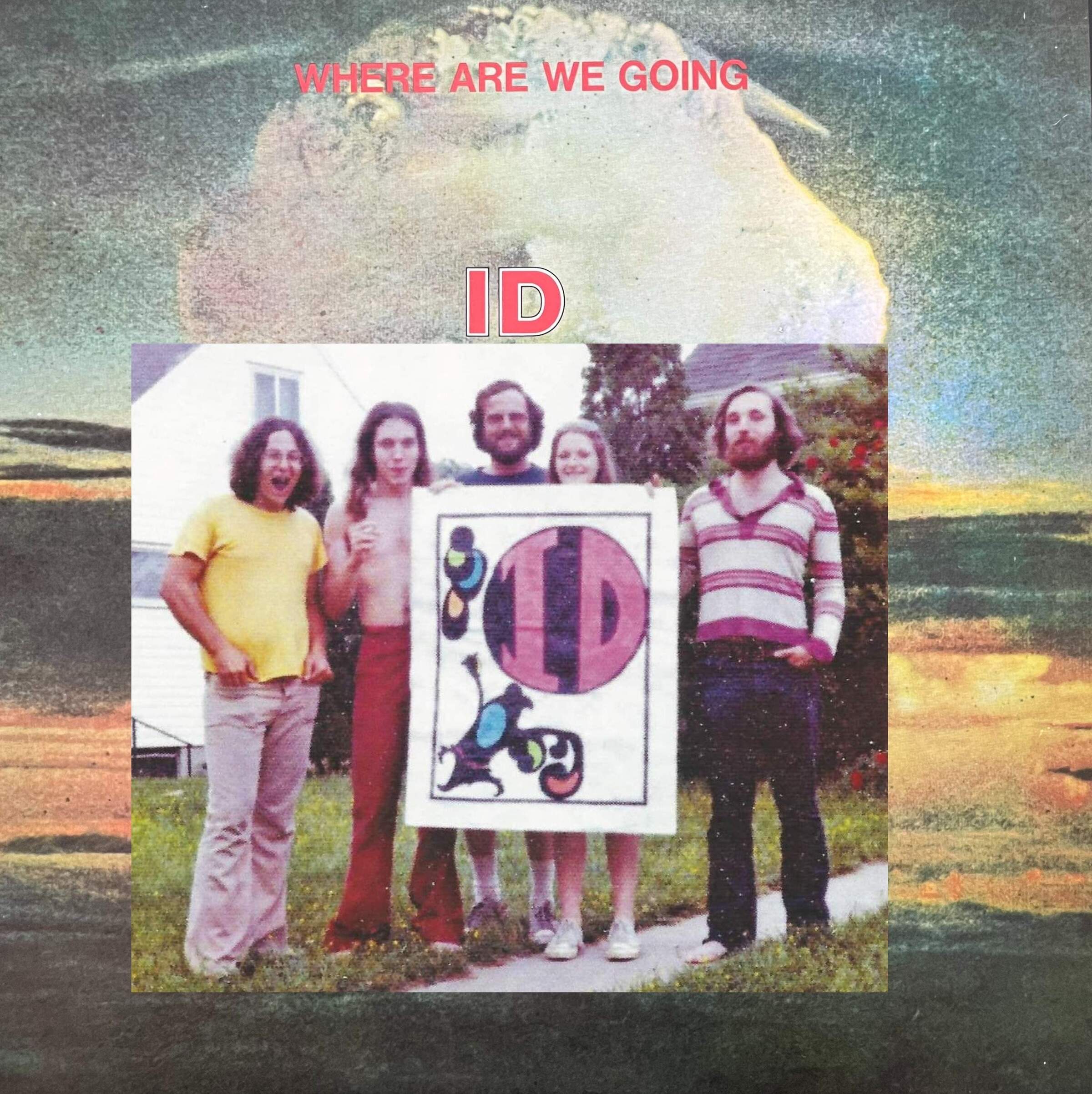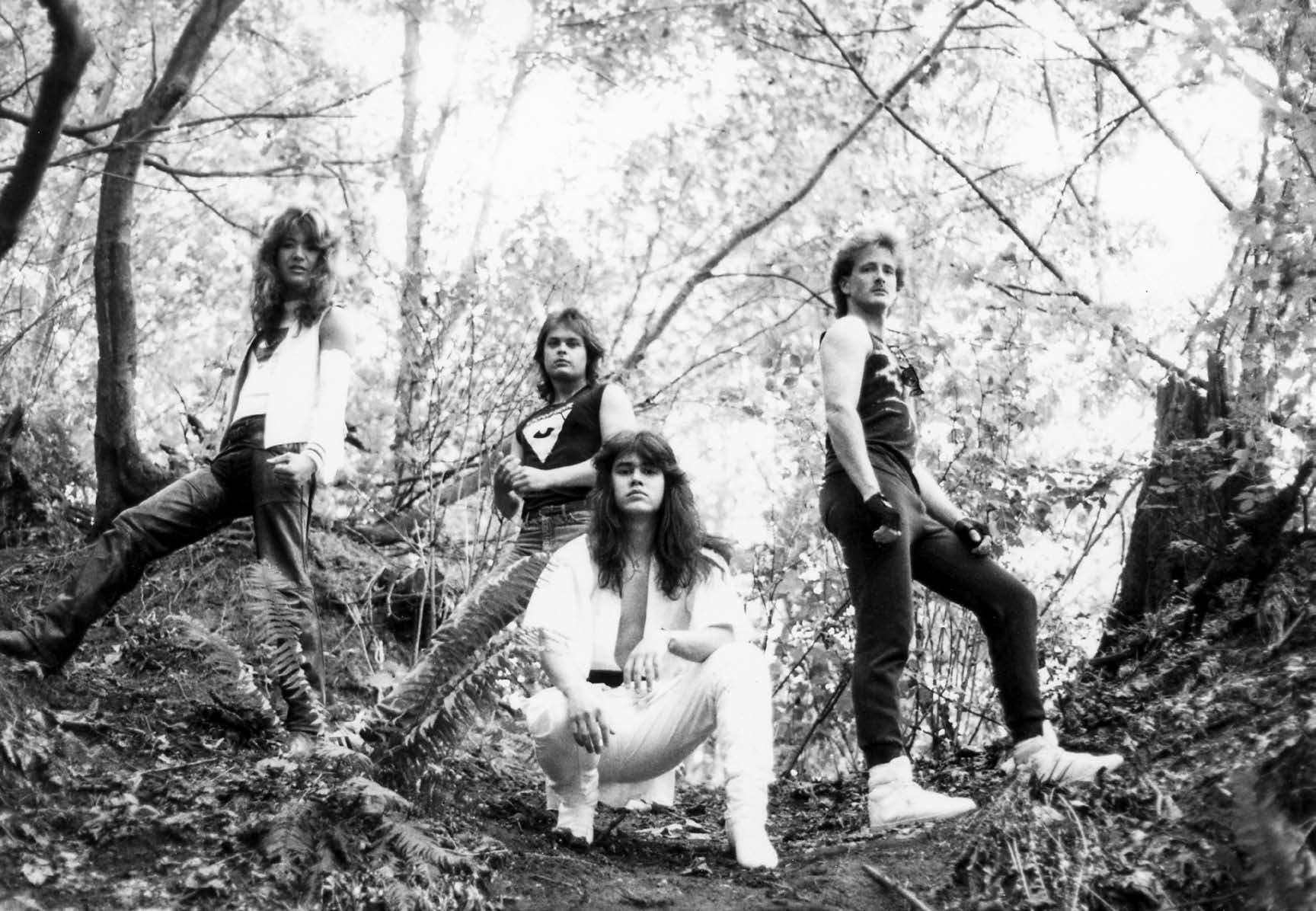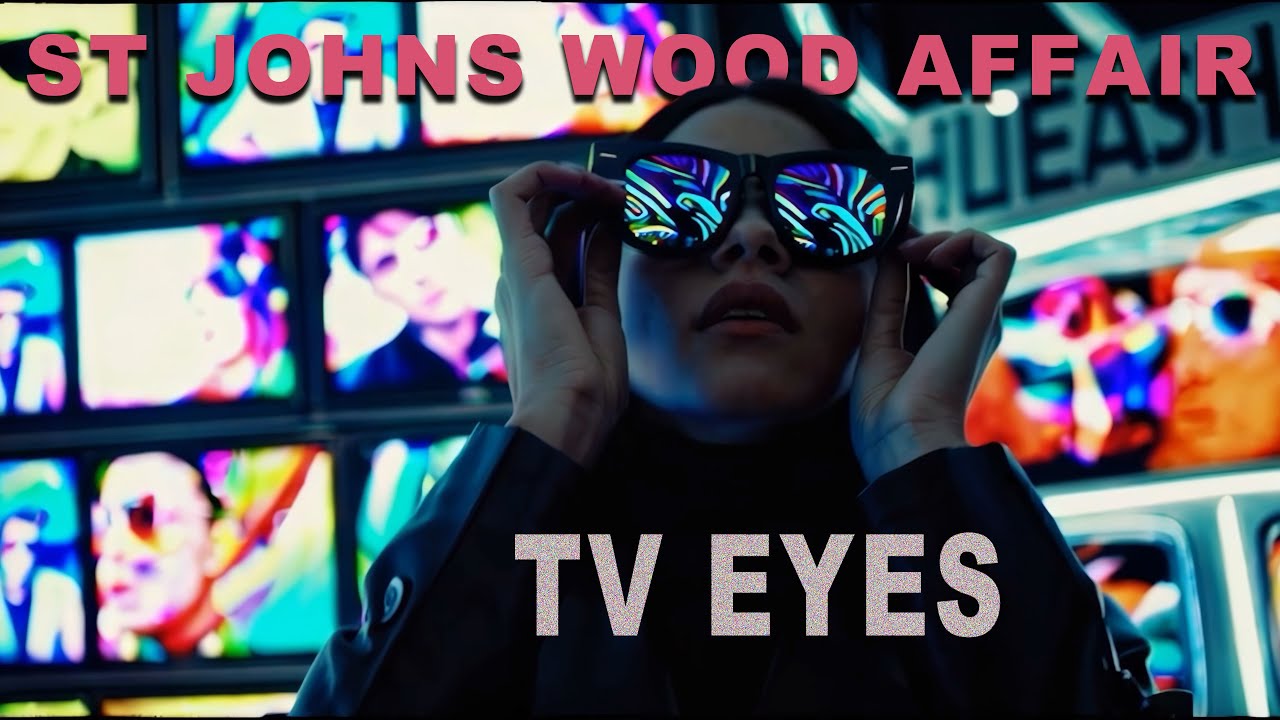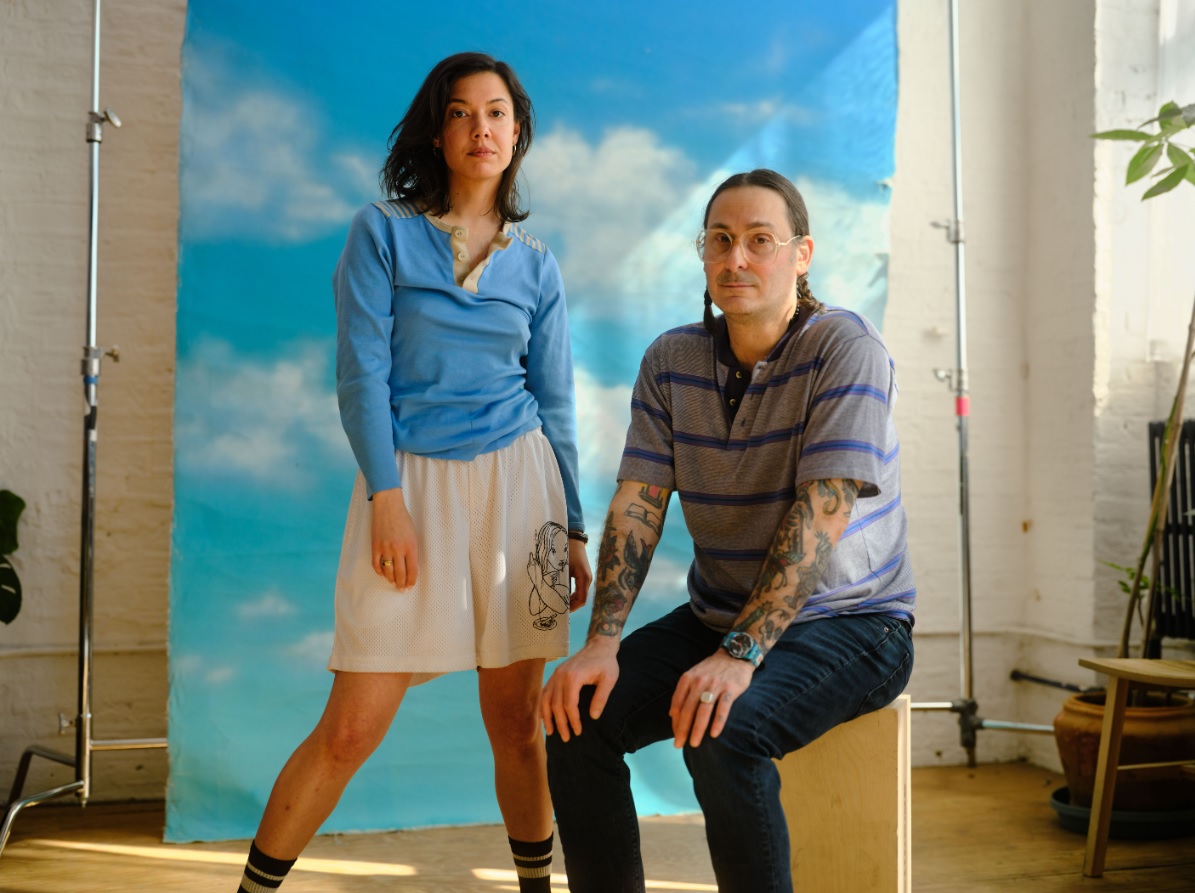The Lost ID Album Gets Resurrected: An Underground Heavy Psych Gem
In the summer of ’72, something electric happened in the basement of the Oickle brothers’ house. David and Gary, already tuning their minds to the likes of Hawkwind and Pink Floyd, found kindred spirit in Kevin Orsie, a bass player with a penchant for Yes.
The chemistry was undeniable. Together with drummer Ralph Jenkins, they turned that basement into a workshop for chaos, a place where riff-heavy jams bled into insane creativity. It wasn’t pretty, but it was real. Soon they were filling up an old church auditorium in Ellicott City, MD, letting their music bounce off its solid wood walls. The scene they built was wild, but it was the recording of ID: ‘Where Are We Going’ at Demensional Sound Studios in New York City that truly captured the madness. Released in ’76, the album was unfiltered and destined to be forgotten by most.
Now, thanks to RidingEasy and Permanent Records, this lost gem is getting a second chance. Remastered and resurrected, ID’s unpolished sound punches through the decades with a force that defies the sterile, cookie-cutter nature of today’s scene. It’s a snapshot of the underground in its most unrefined form, a product of four musicians driven by passion and nothing else. The album’s reissue is a reminder: sometimes the most important music is the one that never had its moment.
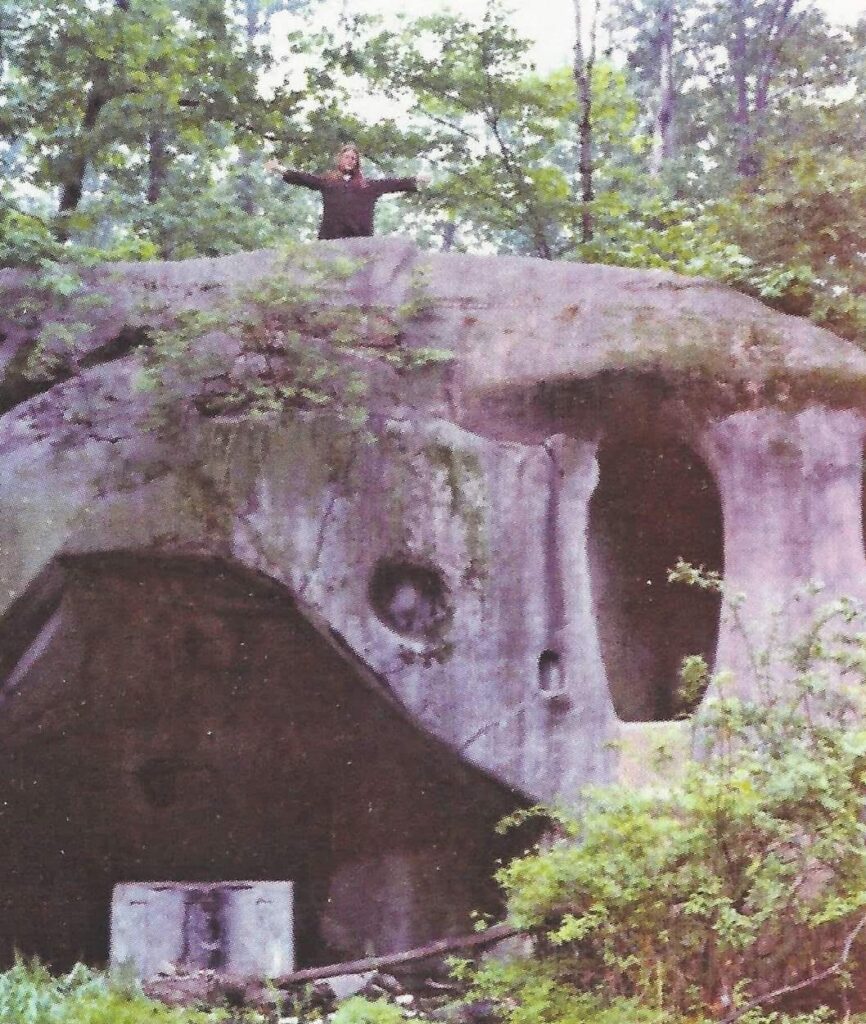
“It was loud and intense.”
Where did your journey begin? Dig into your childhood—what’s the wildest memory from growing up in that place that still echoes in your mind?
Kevin Orsie: My journey began in elementary school. When I was in 3rd grade, I started taking up the drums in school. The teacher was Mr. Weisman. He was head of the music department. I started playing in the symphonists when I was in 4th grade. My father took me to a local music store when I was in 6th grade and bought me a drum set. I soon started listening to bands like Iron Butterfly and such. During this period, I started to play with my brother Larry and a young singer named Mike Files. We rehearsed a lot in my backyard and mostly played originals. This lasted about a year. I was exposed to a lot of different types of music. And so the journey began.
When did music first whisper in your ear? Can you recount those moments that made you realize, “Yeah, I want to do this for life”?
My father was a sax player, so from a young age I was exposed to a lot of music. I used to sit in on the drums at the Elks Lodge whenever my dad was playing. I think for me, when I started playing in ID with David and Gary Oickle, that’s when I realized that I was going to pursue music for life.
Before the birth of ID, were you or the other guys jamming in other bands?
I was invited to a practice at Brent Buckley’s house, and they already had a drummer, Kenny Funk. So, Brent suggested that I play bass for the band. I had never played any type of guitar before, so it was all new to me. I did not own a bass, so we took a cheap six-string guitar, removed the two high strings, and tuned it down an octave. This is the beginning of my journey as a bass player. The first song I ever learned was ‘Let It Be’ by The Beatles. That Christmas, my parents got me a short-scale Univox bass. I then bought a Vox Kensington bass amp. Now I had a real bass guitar. In junior high school, I started playing with Jeff and Fred Byron. We called ourselves Iron Horses. We played some Black Sabbath, and I was starting to listen to different genres of music. The first concert I ever attended was Black Sabbath at the Baltimore Civic Center, and I was hooked. Since I am self-taught, I would say my influences and teachers were Geezer Butler, Jack Bruce, Greg Ridley (Humble Pie), Chris Squire, and Paul McCartney. I jammed with a lot of people during this time of my life. Word got out, and everybody wanted to jam, which led to the conversation with David Oickle from ID.
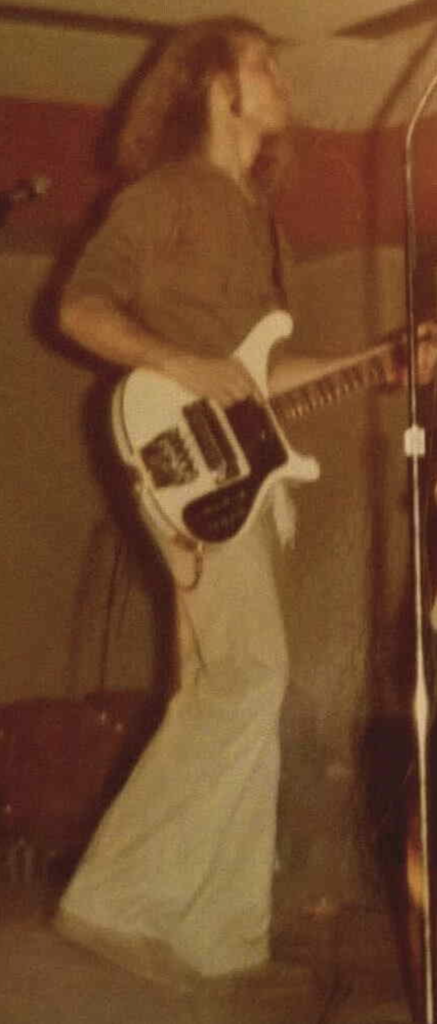
Let’s rewind to the genesis of ID. What’s the story of how the band came together, and what was that initial spark that ignited the fire?
I was walking in my neighborhood one day, and I ran into Dave Oickle. We started talking about music. He was into Pink Floyd and Vanilla Fudge. As I remember, he brought up that he and his brother were jamming in his basement, writing originals, and needed a bass player, so this sparked my curiosity. He invited me to come over for a listen. When I got there, we went down to the basement, and Dave and his brother started jamming some of their tunes. This sparked my interest. Now, not only was Dave a great songwriter and rhythm player, but he was also a very accomplished drummer. They asked me if I would like to jam sometime, and so it began. I brought my gear over, and we started to rehearse almost every day. Soon I found myself wanting a bigger amp and a better guitar. One day when I came over, they had found a drummer named Ralph Jenkins, and this is when it got serious. So, I went out and bought a new amp and eventually a better bass guitar. It was loud and intense. We needed to find a rehearsal space.
And about that name—ID. What’s the backstory behind it?
Gary, the lead guitarist, was in college and was into physics and psychology, so he came up with the name ID, which means your subconscious and superego. And so we had a name—it was time to find a bigger practice space.
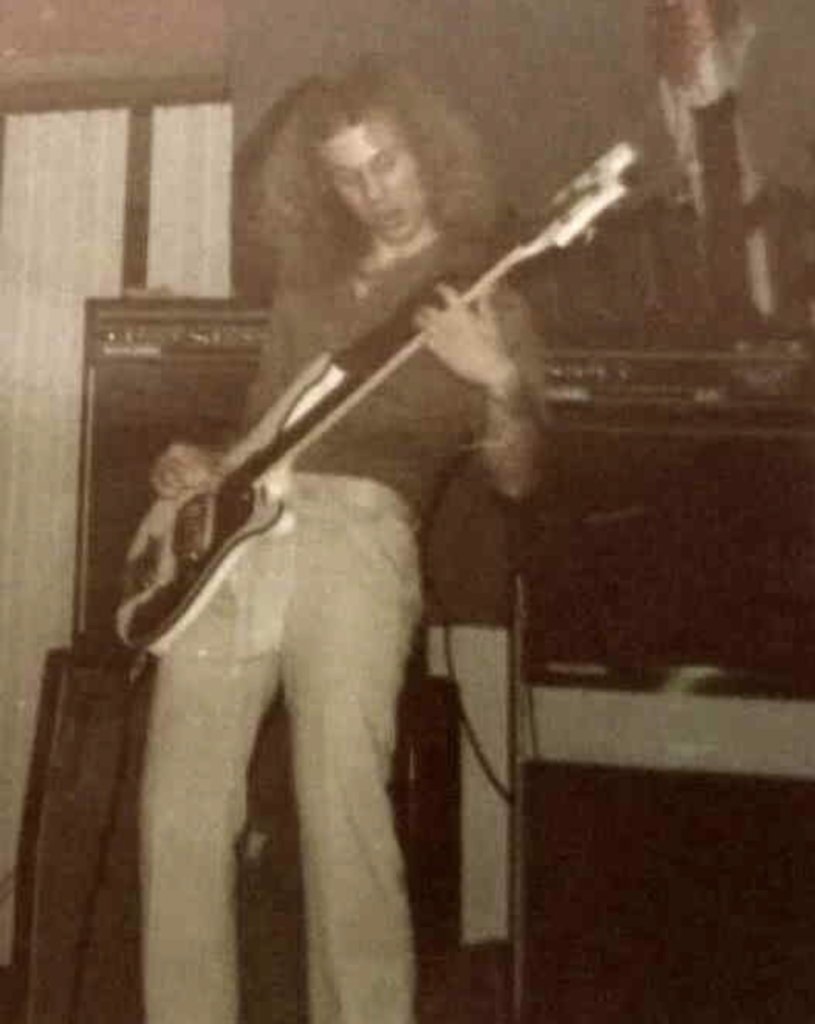
Was there a certain concept you were trying to follow with the band?
It was more or less about creating an atmosphere with the music. Some songs could be rather long and extended. They also liked Hawkwind, so I think everybody’s different influences really created the chemistry for the songs. At the time, I was big into Yes and Chris Squire. The two brothers were more into Pink Floyd. I’m not sure of the drummer’s influences.
Tell us about your rehearsal place…
So, the two brothers had a friend who lived in Ellicott City, Maryland. Big John, we called him. He and his family lived in this old church compound. It had a big auditorium with a stage and seats, like a concert hall. It was all wood, so the acoustics were good overall. We rehearsed practically every day. It was a good environment to be creative and write music. At first, practices were very private, but soon the word got out. People started showing up. Before long, people were coming from all over to listen. Some practices were packed, and some turned into big parties.
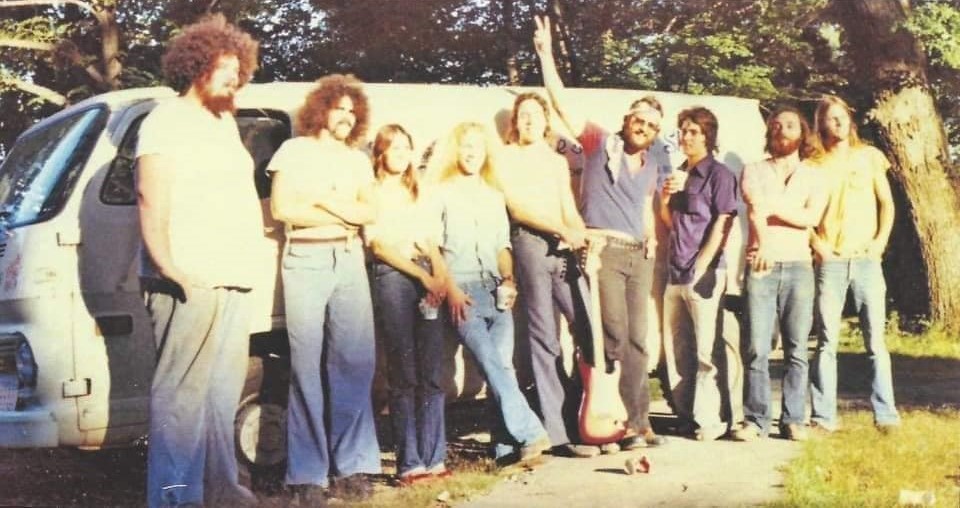
Did you have a special place where you rehearsed, or did the songs emerge from somewhere unexpected?
Songs mostly came from ideas and just seemed to morph from nowhere. There was always a creative chemistry when we got together. I have some bootleg recordings from some of the practices. Also, Dave was very much the perfectionist. Most practices were very comfortable and had a relaxed atmosphere.
How would you describe the local music scene? Which clubs did you perform in, and what other bands did you share the stage with?
We really weren’t up with the local music scene, but there were a lot of clubs and places that had bands playing all the time. Mostly cover bands, and still to this day, the Baltimore music scene is still cover band-oriented. A few bands over the years emerged that did some great original material, but for the most part, it is still the same. As for shows, we mostly played concerts, like Central Park in New York and outdoor festivals… I was only 17 at the time, so it went by so fast for me. Kind of like it was gone as fast as it started. It was a lot to take in as a young adult.
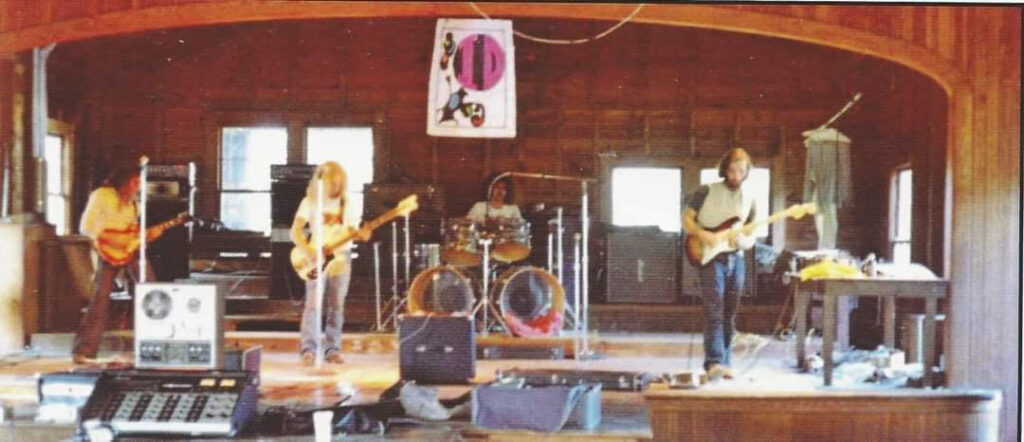
Who sparked the idea to hit the studio and record an album? Where did you end up recording?
I would say it was the two brothers and Eddie Slate, the producer. All I can remember is that one day we were rehearsing as usual, and then, out of the blue, we were heading to New York City to record an album. The album was recorded at Demensional Sound Studio on 54th Street, New York City. The owner, from what I remember, was Jimi Hendrix’s first producer.
The album was a private release—how many copies did you guys release? Did you send any to radio stations or labels, and what was the response like?
I am not sure how many copies were released, but I do know it got airplay. We had a following in California and Texas, and to this day, ID still has kind of a cult following in Europe.
Let’s talk about the album itself. Where was it recorded?
It was recorded at Demensional Sound Studio in New York City. I remember that we recorded the album playing it live together as a band. We used our amps; it was a new experience to me, and being so young, it almost felt surreal. I would like to say that we recorded the songs live in one or two takes. We had played the songs so much; there wasn’t much left to chance. I do know that Dave recorded any vocals separately. And Bob Haskel, who was the recording engineer, actually played all the mellotron parts. I didn’t really feel any pressure; it was not stressful at all.
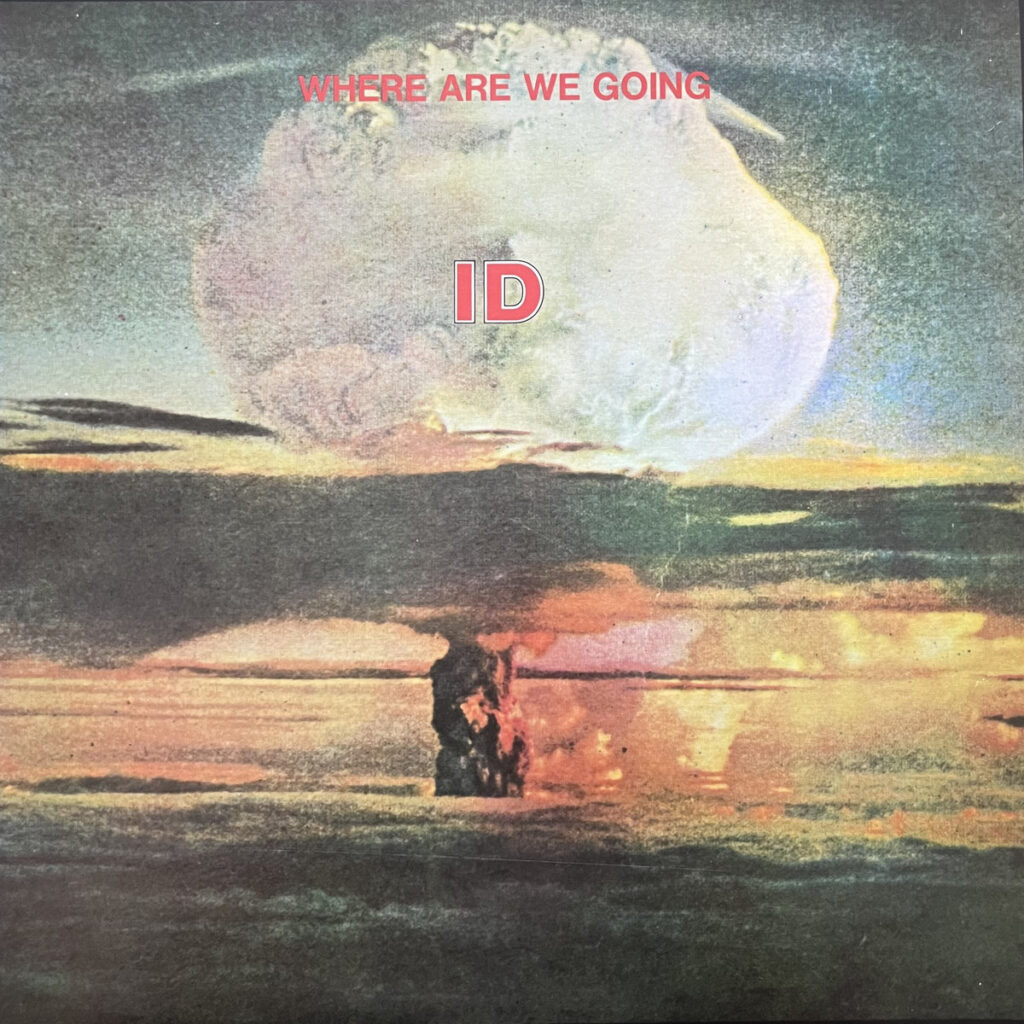
Any standout memories from your time in the studio? What moments still linger in your mind from those recording sessions?
Just really being there and recording after all the rehearsing was very exciting. I mean, we had a lot of laughs, and the sessions had a really good vibe about them. There was no partying or anything like that. It was more like a freedom of expression for me personally.
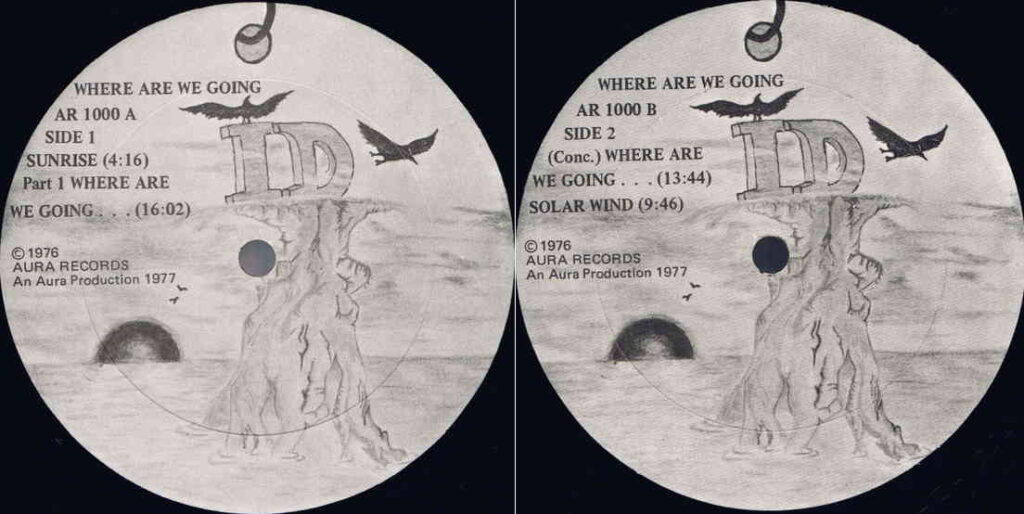
What kind of gear were you rocking back in the day?
I had a Rickenbacker 4000 with one pickup and an Acoustic 370 amp. Gary Oickle had a 100-watt Marshall tube amp. The drummer played a Ludwig set. I personally did not use any effects, just me and the amp. I think Gary used an Echoplex and the reverb of the Marshall. David played through an Acoustic 270 amp, and as far as I know, he only used a tremolo effect on some parts. Gary played a Gibson Les Paul, and David played a Stratocaster.
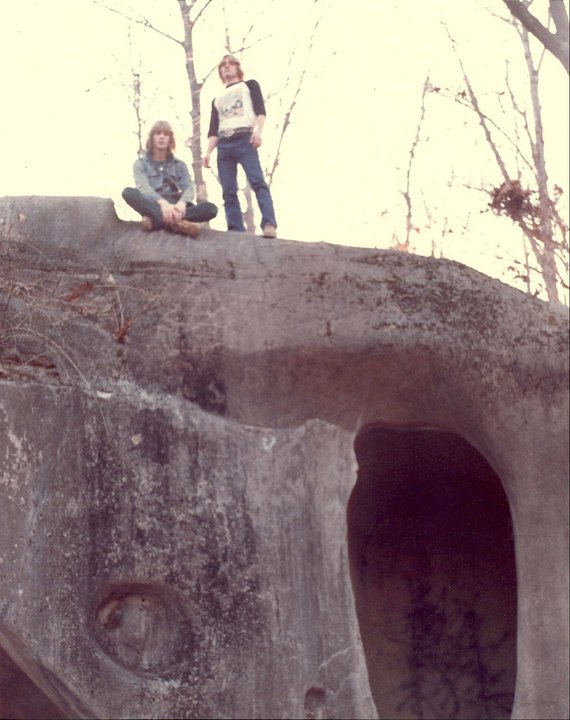
Tell us about the cover artwork.
The two brothers came up with that. The front cover was more or less a question about where mankind was heading. The back of the album was a picture of the Great Nebula. I’m not sure about the little UFO shown on the back cover; the two brothers were kind of intrigued by UFOs.
“It could get crazy at times.”
After the album dropped, what was on the horizon for you?
Well, we were back to rehearsing, then we started playing shows. It could get crazy at times. A lot of drugs were going around. Remember, this was the ’70s, and things could get pretty wild at times. I just wanted to play, and so that leads to the next question of why I left.
How long did ID stick around before hanging it up? Was there a moment when you all knew it was time to call it quits?
We hung around for a little while longer. I stayed a year after the album was released. Then I left because things were getting out of hand with the partying. I could not keep up with it. The two brothers were big into psychedelics, and I just did not want to go down that road. So, for me, it was a choice I made to venture out to new horizons. I know they found a new bass player and carried on for at least a year or so. I just think that after I left, it kind of fizzled out and imploded. After that, I would see Dave once in a while. We always remained friends and would talk about the good old days and reminisce. Unfortunately, Gary, the guitar player, contracted Lou Gehrig’s disease and passed away. As far as I know, I am the last living surviving member of ID. David passed away from a heroin overdose in December of 2023.
Looking back, what’s the craziest gig you ever played? And on the flip side, what show stood out as the absolute best?
Well, that would be the concert we played in Central Park in New York City. It was the most memorable for me personally. It was packed, like a sea of people. People dancing around, vibing to the sounds. But at the same time, it was the craziest. People were so high and stoned it was unbelievable. I had never seen anything like it. It was freeing and full of excitement. I remember when we just finished our last song, I looked down and there were joints, pills, and drugs all over the stage. People had just been throwing them up on the stage throughout the concert. So, I reached down, grabbed a joint, and off I went. So, to me, this was the craziest and best concert we ever played—all in one.
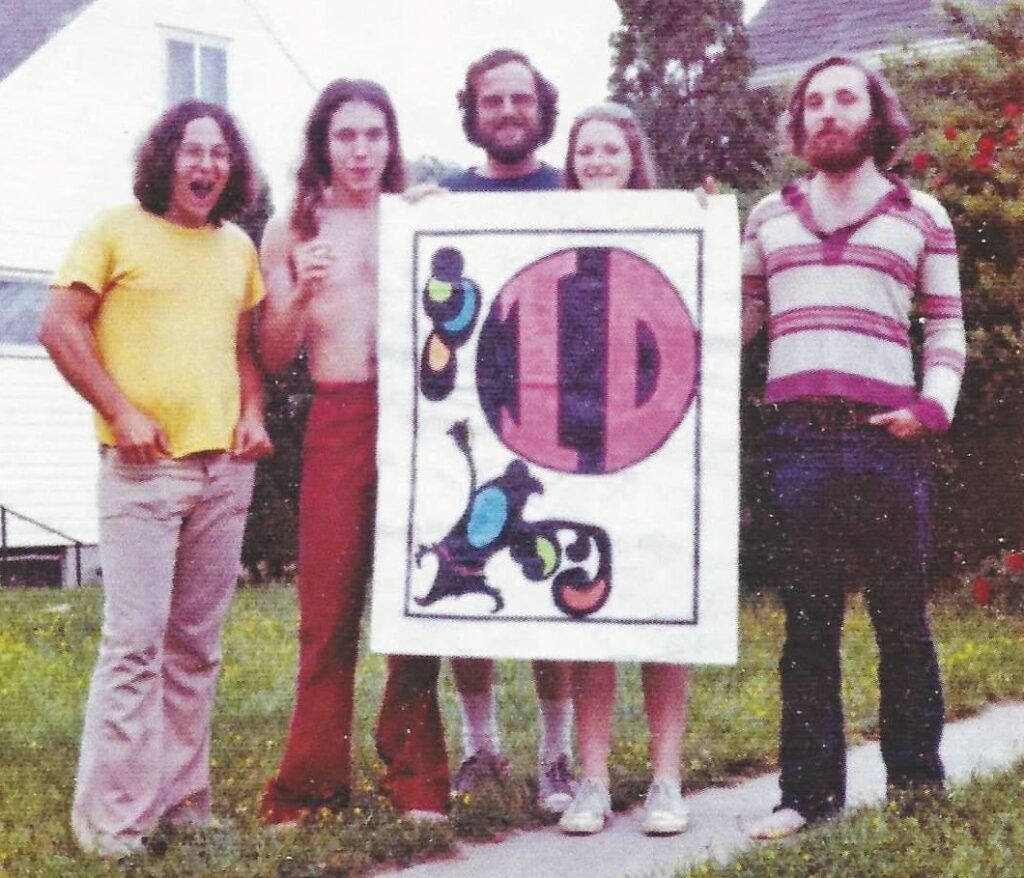
What paths did each member wander down after the band disbanded? Did anyone remain active in music?
I am the only one who remained active in music, and I still am to this day. First, a friend of mine, Ron Bradley, and I formed Viridian Blew, wrote some songs, recorded some of them, and released a 45 single. We got some airplay on 98 Rock. Then I played in a few cover bands and soon grew tired of it, so I started to write and record originals again. Some years later, I played with my brother Paul and nephew Josiah in Fuzz. We released two CDs and played all the time. Very good times. My nephew, who was then 17, left Fuzz to form Tears of Mars with his four other brothers, my nephews. Paul and I then started up Rain Delay, playing all originals. We played some good shows, like Rams Head Live in Baltimore, Maryland, and Bourbon Street. That was a fun and exciting time for me. Then Paul and I were in Blind, a three-piece band with a different drummer. Also original songs. Definitely had some good mojo. After Blind, I continued to write and record my own songs. So now I have Vista Sky; this is my baby.
I have released three albums this year on Bandcamp, and I am finishing up another. Also, I’m getting ready to film a couple of videos and hope to play some live shows in the near future. I have been privileged to have a very unique journey through music and will carry the torch for as long as I am able.
Klemen Breznikar
Vista Sky Facebook
Permanent Records Official Website / Facebook / Instagram / Twitter / Bandcamp
RidingEasy Records Official Website / Facebook / Instagram / Twitter / Bandcamp / Tik Tok / YouTube

